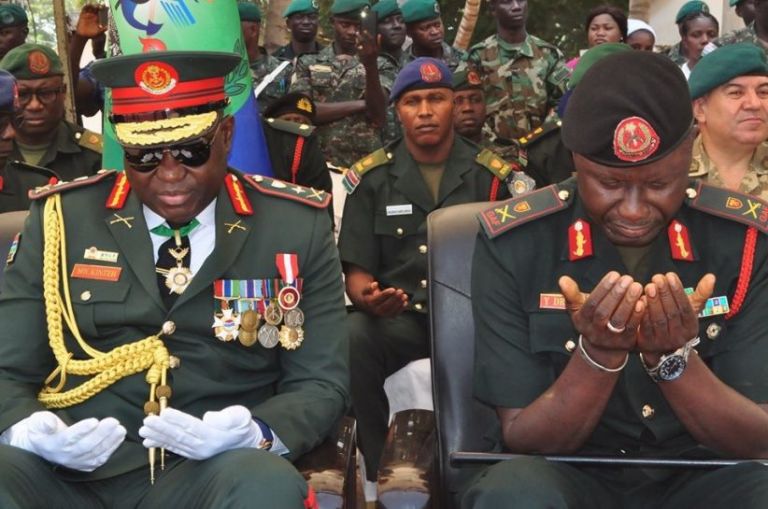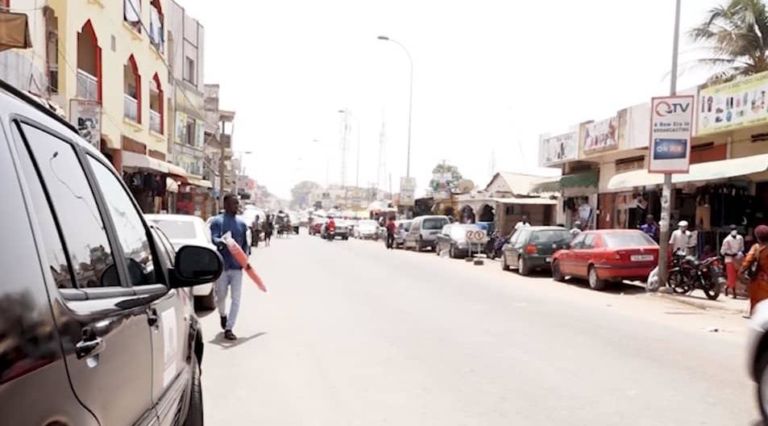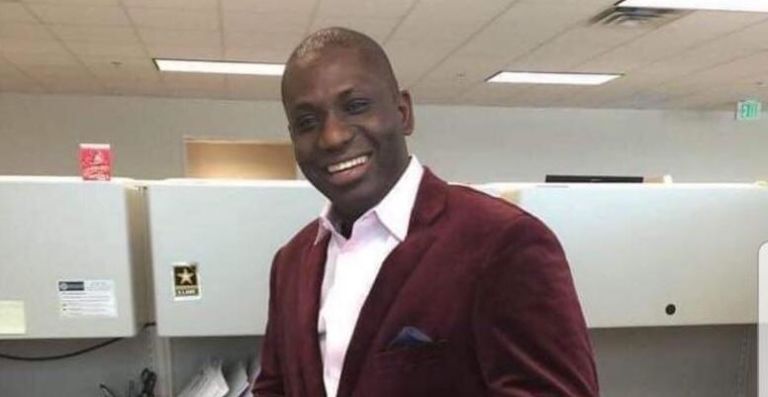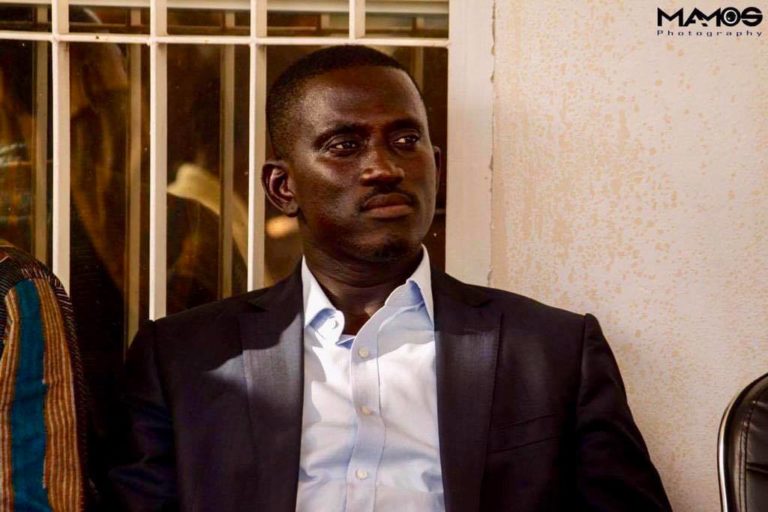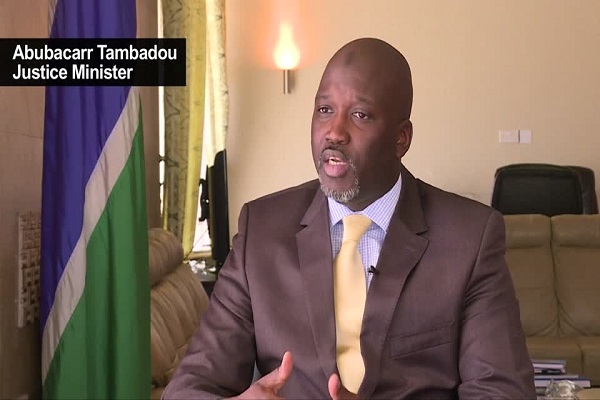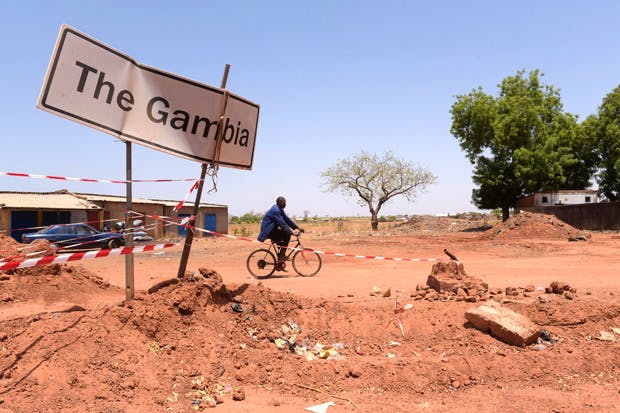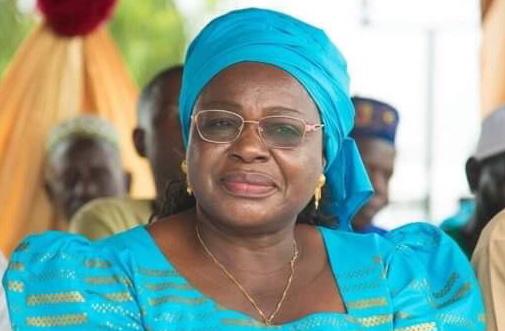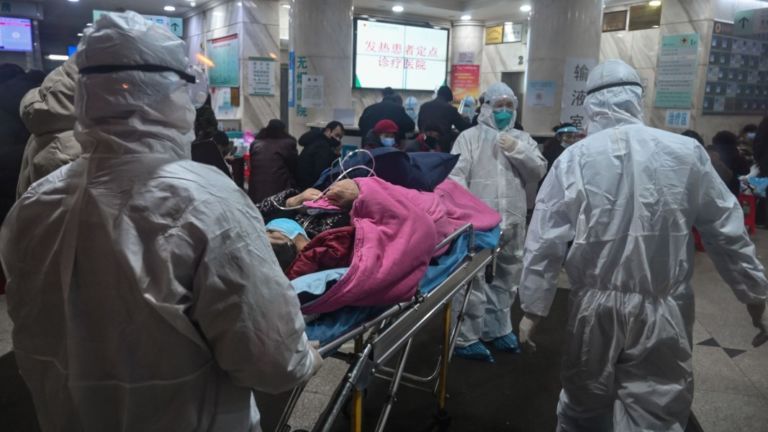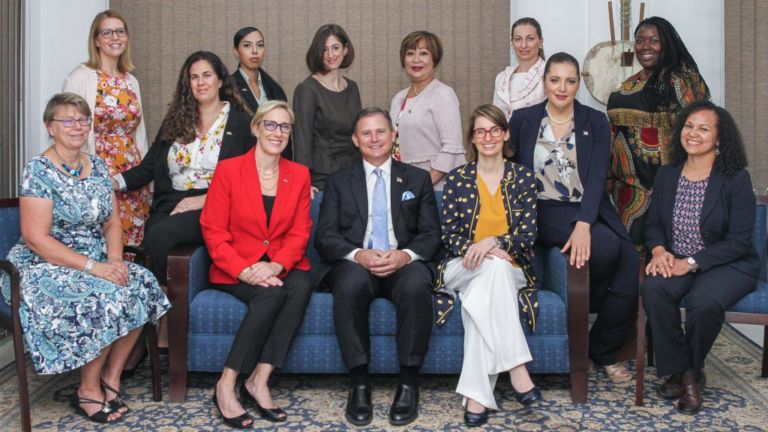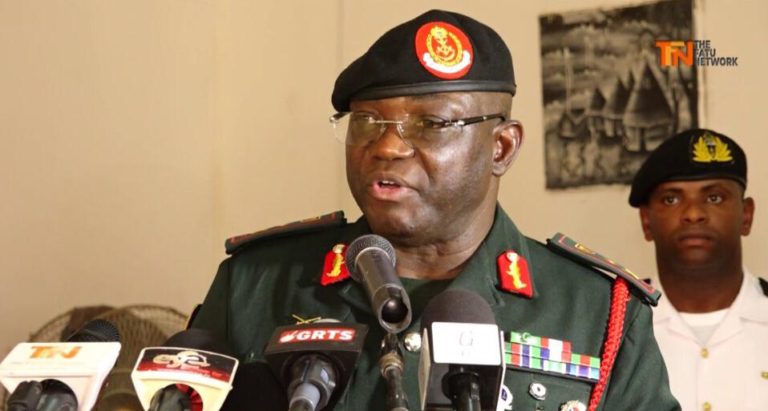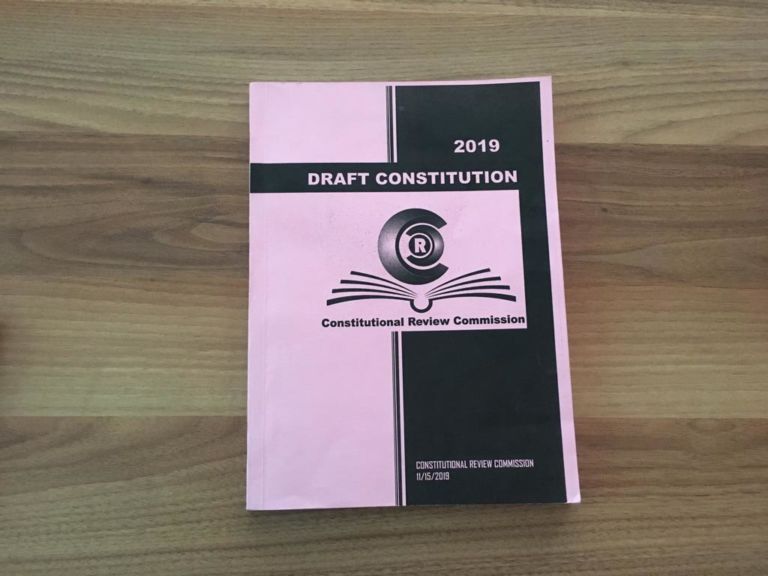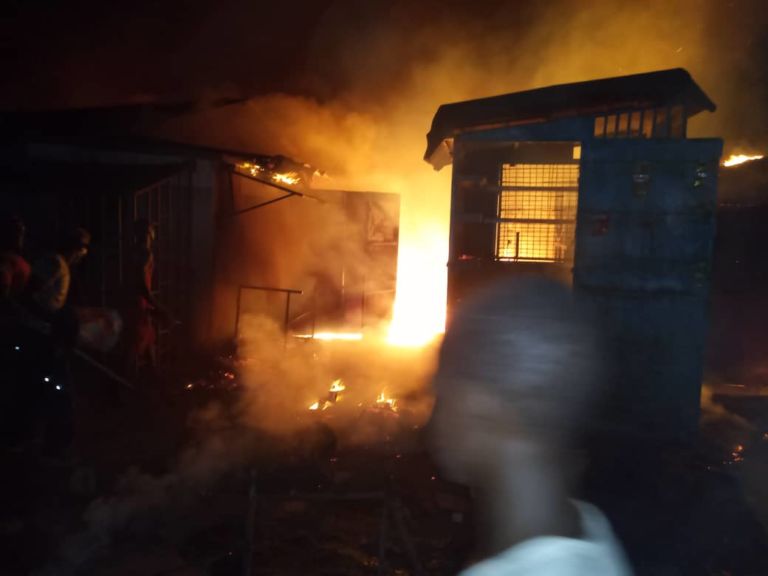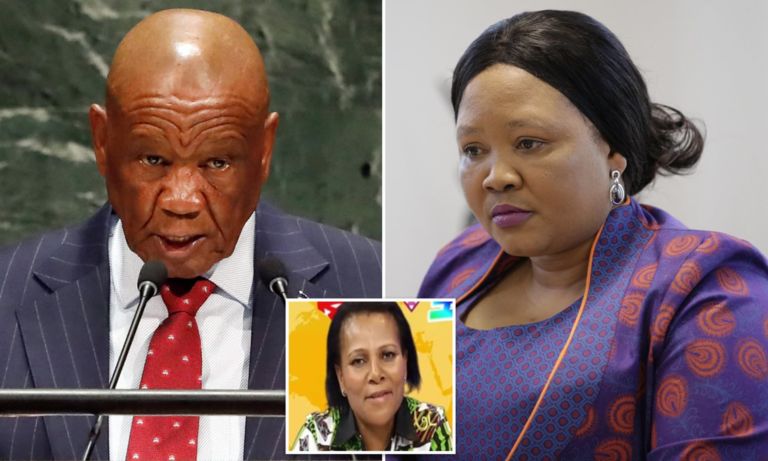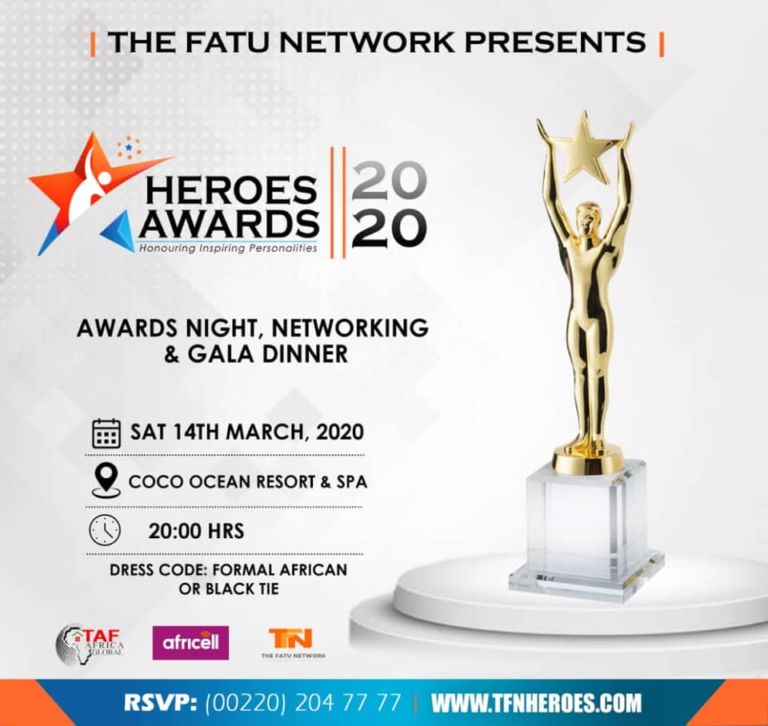Good Morning Mr President,
I greet with you neither cheers nor jeers; I approach you on this matter with a sombre disposition given the urgency of our situation regarding the subject of this epistle. This is the fourth week since I released the first of these letters and the situation has actually worsened partly due to your own ineffectiveness in leading us as a nation.
I must admit that I am aware of some recent improvements in the way your government is handling this coronavirus pandemic but why did you have to wait till things go deadly before you take the most recent moves you have made. I still want to congratulate you for the recent steps you have taken albeit the public is not in the know, thanks to your comatose Public Relations Department at State House. I wish to thank you for taking some of my advice on this matter and I pray that Allah continues to guide and strengthen you and the office you hold now and until the day you pack and leave, hopefully in less than 21 months.
Your Excellency, we have a problem! At a time when this country is faced with our most deadly challenge, the man heading efforts to ward off the menace does not have the personality, sense of clarity and persuasiveness to #lead us to safety.
Your health Minister is a colleague of mine; I worked with Dr. Samateh from 2013 to 2014 when I served our country as Presidential Affairs Minister and Head of the Civil Service with keen interest in the health sector. This man actually did help me a lot with his services as personal physician for close relatives of mine and so I hold no grudge or ill feeling against him.
But the fact is that Dr. Samateh may be a good surgeon but he is not blessed with the requisite leadership qualities to lead a whole Ministry of Health at any time; talk less of a scary period like this when the marauding Coronavirus seeks to snuff the very life force out of our bodies.
Your Excellency, it is in view of the forgoing that I made a Facebook post as follows:
And surely one of the most effective moves that could help us contain this corona pandemic is for President Barrow to fire his Health Minister.
I love Dr Samateh but he doesn’t have what it takes to provide us with the proactive #leadership that we need to survive this menace…
I am not saying that Samateh should be kicked out…
But Barrow can #relieve him of his appointment and redeploy him elsewhere with the same salary and benefits to protect our health/lives.
Tonyaa kesso yeh execute.
#CantCageMe
This post went viral with lots of debate surrounding it. Those who do not agree with me actually went beyond the subject matter to even attack me personally with intent to silence me. But they made the biggest mistake because criticism only emboldens me and I have vowed to live my hashtag #CantCageMe. I am a pure descendant of the ancestors of the late Mama Tamba Jammeh from the Confederacy called Badibu Bijankerr so I can never be intimidated into silence.
Subsequently I made another post, not merely out of defiance but with a view to further clarify my line of thinking for those honest critics of my opinion who wished to further understand my line of thinking. The following was the follow up post:
If you know the level of internal wrangling, turf wars and down right lethargy @ the Ministry of Health, then you would understand why I am calling for the removal of the Minister…
The timing is just perfect for Samateh to either resign or be fired. My stance on this holds with or without the #coronavirus pandemic.
The guy, very nice and cool, is not fit for the #leadership job he has been entrusted with.
I love and respect Dr. Samateh but Gambia is bigger and dearer to me.
This is not the time to be nice and diplomatic. Coronavirus is deadly and our Ministry of
Health is not ready to handle this under their current leadership…
#CantCageMe
A few days after the above post, media reports emerged that a young man lost his life after he was rushed to the Serrekunda General Hospital, from where he was referred to Banjul due to lack of oxygen; but the ambulance that was supposed to ferry him to the referral hospital could not be started due to a flat battery.
Am I not right that your Health Minister should be replaced? Gambian activists and social media made no noise about this loss of life but if the young man was a prominent member of our society or famous social media celebrity, the noise would have been deafening. I am yet to see or hear an apology from your Health Ministry regarding this act of negligence. Is this the kind of society we want to build and sustain?
Mr President, I am not asking for any malicious or vindictive axing of your health Supremo. All I ask for is a replacement and you are going to replace this man anyway no matter how long it takes.
But why do you have to wait till a whole country suffers irreparable loss under these circumstances?I believe Dr Samateh could still be useful as a surgeon at the EFSTH.
You can even elevate him to the position of Special Presidential Adviser on Health matters but he cannot be the guy to lead the health sector and execute policies and programmes in these dangerous moments.
And truly Dr. Samateh has proven to be a good adviser. On one of our many tours of the hospital in Banjul, He advised me to construct a shed at the children’s wing and we did it. He was very emotional when he told me about a situation when he saw some women with their sick children stand in the rain waiting to be attended to by doctors. He spoke about how he was in tears that day.
His advice started a construction and rehabilitation spree at the children’s wing, the theatre and other units, under my watch.
Dr. Samateh advised me to send a team of young doctors for specialization in Ghana and I went straight to President Jammeh’s office and got approval to fund that programme.
The nice Black Ford cars currently being used by doctors with the EFSTH number plate came into being with advice I got from Dr Samateh to help ameliorate working conditions for doctors and I went straight to retrieve those cars from Yahya Jammeh’s car lot at State House and hand them over to Dr Samateh and his staff. I saw the truth in what Samateh said and I humbly went forward to execute the necessary steps to improve the situation.So this man can be an excellent adviser.
However, leadership is not a gift that God bestows on everyone. And it is my view that your Health Minister does not have the natural disposition to manage, inspire and motivate a team that already had its own complications well before he assumed leadership of their organisation.
Mr President, knowing quite well how you run things at State House, I don’t see you replacing Dr. Samateh anytime soon. And if that is going to be the case, then I hereby suggest the following to reduce the risk of thousands of Gambians dying because of his ineffective handing of the current pandemic:
Please call Dr Samateh and send him to see your irascible Vice President. Let her address the Health Minister with the anger and temerity she did when she addressed our National Assembly Members when they showed courage and decisiveness in rejecting your nominee for the position of Ombudsman. Let Dr. Touray prick our Health Minister’s conscience with some powerful words of admonition. Perhaps that will inject some adrenaline into his system for better performance.
I would also suggest that you send the Imam Ratib of Banjul and the Catholic Bishop to call the Minister and his management and professional staff; let these venerable shepherds appeal to Samateh and his team, for the sake of God, to set aside their personal differences and suspend the turf wars at that Ministry in the interest of saving lives. Let them advise your minister to let go of the past and break the habit of keeping malice with his subordinates and let them vow to unite and work together as a team “towards the common good.”
Your Excellency, I Believe that if the foregoing suggestions are taken into consideration, our situation as a country would improve regarding our management of the coronavirus pandemic.
Once again, I pray that Allah guides and protects you, your Health Minister and his entire team as you forge ahead in trying to contain the current realities of our situation.
Yours,
Momodou Sabally
Former Presidential Affairs Minister and Head of the Civil Service
Founder-President, Sabally Leadership Academy

